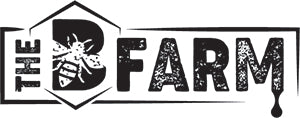If you’re planning to start overwintering nucs (nucleus hives), you’re making a smart move to strengthen the apiary and ensure the bees’ survival through the colder months. Proper preparation can lead to healthy colonies.
This guide will walk you through understanding overwintering nucs and give you some preparation tips to give your bees the best chance of surviving the winter chill.
What Are Overwintering Nucs?
Overwintering nucs are small, compact colonies that beekeepers prepare before winter. Think of them as a mini colony designed to develop into a full hive during the warmer months.
The nucs typically contain a queen, a small population of bees, and enough resources, such as honey and pollen, to sustain them until spring. By overwintering nucs, you create a backup plan for colony loss and improve hive sustainability.
Step-by-Step Tips To Prepare Overwintering Nucs
Select a Healthy Queen
The health of your nuc begins with its queen. Choose a young, vigorous queen from a strong colony. A healthy queen ensures egg-laying continuity and boosts the bees’ chances of surviving the winter.
The B Farm is the one-stop shop for all things beekeeping. You can find items such as healthy queens and honeybee nucs for sale.
Ensure Adequate Resources
Bees need enough honey and pollen stores to sustain them during winter. Aim for at least five frames of honey in the nuc while maintaining proper spacing for insulation and clustering. If resources are low, provide sugar syrup in the fall so the bees can prepare for winter.
Provide Insulation and Ventilation
Insulation helps keep the bees warm. Ventilation prevents condensation—a silent killer for overwintering bees. Wrap the nucs with insulation material, and add an upper ventilation hole to release moisture.
Protect Against Pests
Before winter begins, inspect the nucs for pests like varroa mites. Use mite treatments to guarantee the nuc remains pest-free. Weakened bees are less likely to survive cold, snowy, windy conditions.
Choose the Right Location
Place the nucs in a sheltered area out of direct cold winds. Keep in mind that south-facing locations with ample sunlight provide the warmth bees need to stay active, even in winter.
Monitor Throughout Winter
Check the nucs periodically throughout the season. Watch for signs of starvation, low colonies, or moisture buildup. Respond accordingly to support your bees.
Expect Healthy Colonies Come Spring
Understanding the preparation tips for overwintering nucs is worth every effort. By following this advice, you can transfer healthy nucs into large hives come spring.
